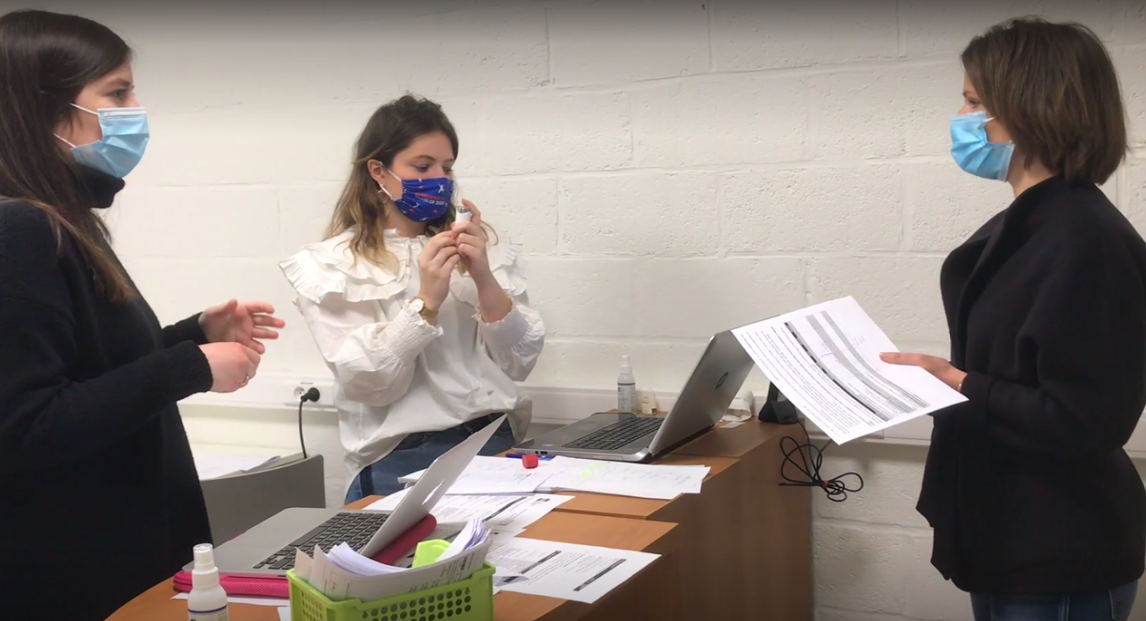The Pharmacy Game Newsletter
Who are you?
My name is Laurence Balencourt. I have been a passionate French teacher for the past 20 years. My focus was on teaching French literature & philosophy. Three years ago I joined the ACTO team of the Free University of Brussels (VUB) that delivers specific language courses throughout almost all faculties. In 2019 I started brainstorming with a project on “language competency learning medical French for caretakers” on how we could implement French in the educational courses of medicine & pharmacy.

How did you get involved with the Pharmacy Game?
I was lucky that throughout this project I encountered enthusiastic teachers who are convinced by the importance of knowing different languages to provide the best health care to patients in their native language where possible. A first step for the Pharmacy game, Gimmics was observation. It quickly became straightforward that we could simulate the same cases in both Dutch & French and I also included myself as a patient in the role plays.
How many times have you participated in the Pharmacy Game?
The last 2 years our organization evolved a lot; our students are offered the possibility to prepare themselves by pre-study of vocabulary, several exercises, memorizing typical expressions and several communication principles.
What do you like the most about the Pharmacy Game?
Meeting new students of course. I get energized by seeing them, through the learning, evolving in a natural way towards total language immersion. At the start they are impressed and gradually we see them growing self-confidence and self-belief by playing the different cases. And of course what I enjoy a lot is working with a motivated team including the students who also teach me a lot on their specialty and the feeling of stepping out of my comfort zone. The best trigger to develop, change begins at the end of your comfort zone, even for a teacher!
Would you like to share some interesting experience about the Pharmacy Game?
I am quite impressed by the care and patience the students apply to find the right words, the proper way to share information to help to understand a treatment or diagnosis and to motivate a matching attitude or behavior.
The dialogues we practice are often longer and more complex then in their native language but by raising that bar it creates an opportunity to rethink and analyze about certain aspects that seem straightforward in their own language. Those exercises, I hope, create opportunities to contribute to their listening skills and enlarge their empathy by the language confidence with the added value of the goal they always share; which is being the best caretaker possible.
Within the simulations students often apologize for their language difficulties or slower pace in explaining. Interesting… as for me as a patient I feel even more connected to caretakers who take the time and patience beyond the medical jargon.
By being a patient, French teacher and native speaker at the same time I have the chance to be authentic, closer to reality and helping the students on their road to the best adapted communication in their meaningful job impacting each patient’s lives in each language. Making a difference is universal!
Back to newsletter